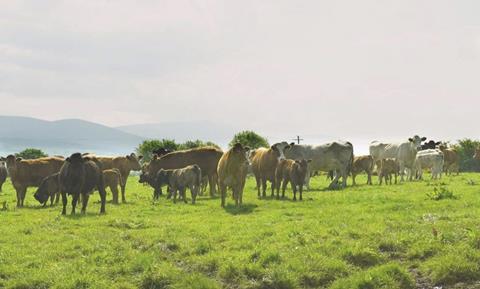In response to the IPCC report on land use across the world and its impact on the climate, NFU president Minette Batters said: “Having gone through the report in detail, it is clear that the IPCC recognises the important role animal products play in a balanced diet, and when produced in sustainably in low greenhouse gas emission systems is actually part of the solution to climate change.

“It is therefore incredibly frustrating to see this inflated within some part of the media to recommending a reduction of meat consumption in the UK.
“I take this opportunity to reiterate that our aspiration to become net zero – reducing our greenhouse gas footprint and offsetting emissions – by 2040 does not mean downsizing agricultural production. This would only export our production to countries which may not have the same standards of environmental protection.
“Our plan for achieving our net zero goal is focused on making the most of our natural resources. With 65% of UK farmland best suited to growing grass, this means using our grasslands, which are also a huge store of carbon, to produce high quality beef and lamb.
“British farmers are determined to continue reducing methane emissions through a variety of methods, including dietary changes and breeding techniques. Alongside this, we are also looking for ways to continue to improve soil health and increase organic matter within our soils, which is one of our greatest assets.
“With last year’s weather extremes and the recent flooding in Yorkshire, there is no denying that we are already seeing the impacts of climate change and it is encouraging that the report recognises the threat the climate poses on food security. We now need to see government policies that will support the farming industry in delivering on its net zero ambition.”
Patrick Holden, chief executive of the Sustainable Food Trust, said: “We think many of the headlines about this report are not accurate and we instead need a much more nuanced public discussion about which foods, both livestock and plant-based, are part of the solution and which are part of the problem.
It’s all very well for those recommending a switch to eating more plant-based foods, but if those diets include foods like palm oil, genetically modified soy, almond milk or avocados, for example, all of which are from production systems that are causing damage to the environment, they will do nothing to tackle climate change.”
BMPA's Nick Allen said: "Land in the UK is highly suited to livestock. We won't stop climate change by downsizing UK production. People thinking about how much meat they eat should also be thinking about how it's produced. UK productions is 2.5 times more efficient than the global average."
This story was originally published on a previous version of the Meat Management website and so there may be some missing images and formatting issues.















